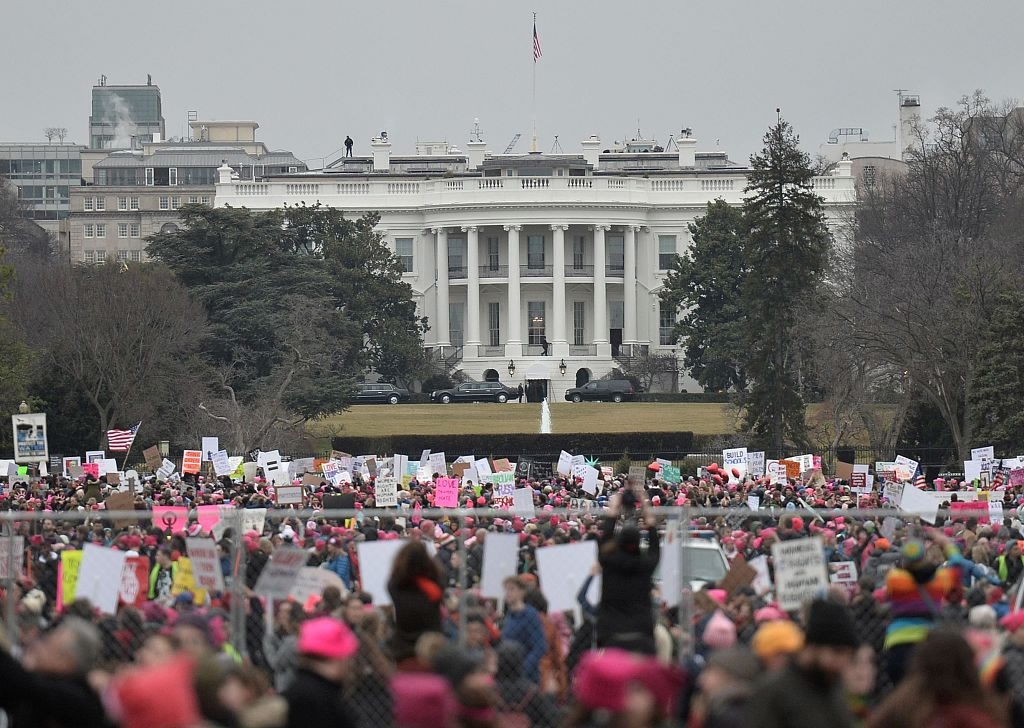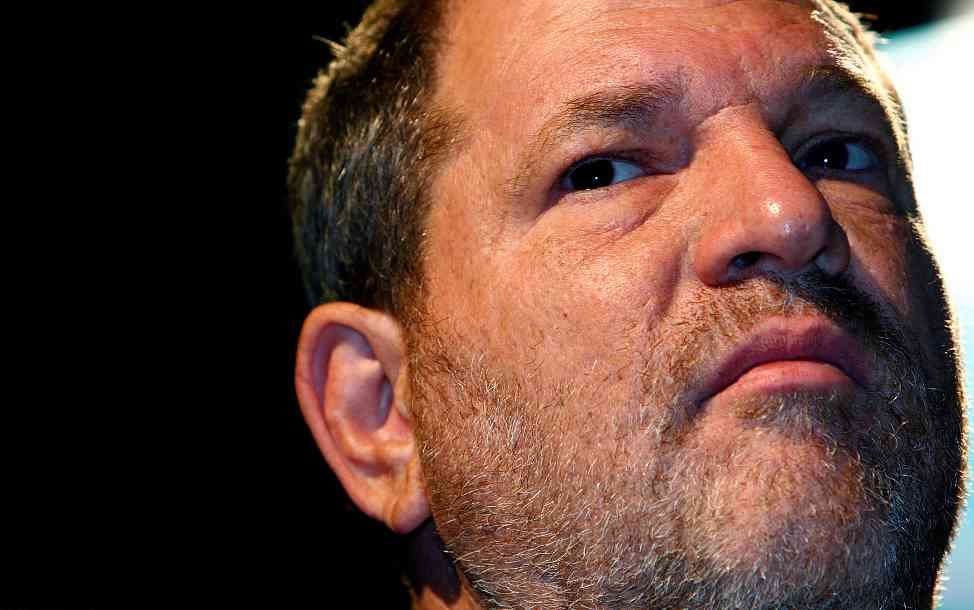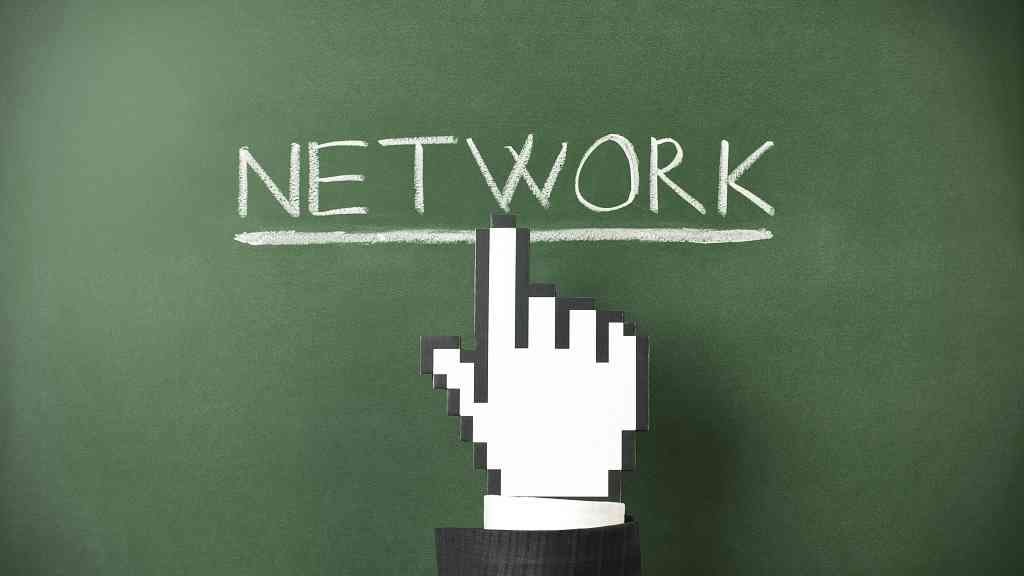In the past month, several high-profile dictionaries have made "youthquake," "feminism," and "fake news" words of 2017, which suggests that the year has been a turbulent one in Euro-American politics.
The youth take initiative
Many expressed their confusion on Twitter when the word "youthquake" was announced as the word of the year by Oxford dictionary, which defines the term as “a significant cultural, political, or social change arising from the actions or influence of young people.”

Supporters wait for Britain's opposition Labour Party leader, Jeremy Corbyn, at an election rally in Colwyn Bay, Britain, June 7, 2017. / VCG Photo
Supporters wait for Britain's opposition Labour Party leader, Jeremy Corbyn, at an election rally in Colwyn Bay, Britain, June 7, 2017. / VCG Photo
The usage of this word increased significantly during and after the UK June general election, which delivered the Labour Party better results than most political pundits had predicted due to the participation of the younger generations. These voters, traditionally indifferent to politics, realized their future actually depends on those who are in power.
The Conservative government is now busy negotiating their plans for Brexit, which would ultimately be a disaster for the current or future employment prospects of the younger generations. Their vote is no longer irrelevant, but one that is now considered the path toward changing their future in Britain.

Demonstrators protest near the White House in Washington, DC, for the Women's March on January 21, 2017. Hundreds of thousands of protesters spearheaded by women's rights groups demonstrated across the US to send a defiant message to US President Donald Trump. / VCG Photo
Demonstrators protest near the White House in Washington, DC, for the Women's March on January 21, 2017. Hundreds of thousands of protesters spearheaded by women's rights groups demonstrated across the US to send a defiant message to US President Donald Trump. / VCG Photo
Women speak out
Merriam-Webster’s choice of "feminism" is also quite surprising. As suggested by its website, "[t]he word was a top lookup throughout the year, with several spikes that corresponded to various news reports and events."
On the one hand, feminists find it frustrating and daunting because after almost a century of the feminist movement worldwide, especially in the Euro-American context, many still have to look up this word in a dictionary.
On the other hand, we should see this as a positive sign, as also stated on the website, since the peak in search results following relevant news events means that it again became part of a wider conversation.
The first spike this year was due to the Women’s March on Washington, DC, when women went on the street and held slogans such as "build walls… around Trump." They expressed concerns about Trump’s ignorance of the basic rights of women, migrants and other social minorities, as well as protested against the new wave of conservative discussions around sexuality and abortion in the US.

White House Counselor to the President Kellyanne Conway talks with reporters during "Regional Media Day" at the White House, Washington, DC, July 25, 2017. / VCG Photo
White House Counselor to the President Kellyanne Conway talks with reporters during "Regional Media Day" at the White House, Washington, DC, July 25, 2017. / VCG Photo
Searches for "feminism" reached another peak after Kellyanne Conway, counselor to President Trump, said that she does not consider herself a feminist because she believes feminists are "anti-male" and "pro-abortion."
This reflects the long-term stigma surrounding the word, one which is largely due to the fear of shifting power relations between men and women in patriarchal societies, as well as the fear of the critical power that feminism conveys. In reality, very few feminists could be labeled "anti-male," as the ultimate goal for most of them is to achieve gender equality. The demonization of feminism prevents those who only have basic notions of what feminism is from participating in relevant discussions and activities.

October 15, 2007: Harvey Weinstein attends the inaugural Middle East International Film Festival in Abu Dhabi, UAE. The Producers Guild of America banned disgraced movie mogul Weinstein for life on October 30, 2017, vowing that sexual harassment would no longer be tolerated within its ranks. New accusations of sexual assault have continued to pour in since investigations in the New York Times and New Yorker three weeks ago exposed the tycoon as a relentless, bullying sexual predator. / VCG Photo
October 15, 2007: Harvey Weinstein attends the inaugural Middle East International Film Festival in Abu Dhabi, UAE. The Producers Guild of America banned disgraced movie mogul Weinstein for life on October 30, 2017, vowing that sexual harassment would no longer be tolerated within its ranks. New accusations of sexual assault have continued to pour in since investigations in the New York Times and New Yorker three weeks ago exposed the tycoon as a relentless, bullying sexual predator. / VCG Photo
The third spike for “feminism” was due to the notorious Hollywood sex scandal near the end of 2017. After the Harvey Weinstein scandal broke, women in all walks of life were inspired and encouraged to speak out about their experiences of sexual harassment and assault. The use of the #MeToo hashtag created a global wave challenging the social structures that had long tolerated sexual abuse by powerful men. The increase in searches of the word reveal that gender politics had gained more publicity than ever.
The dwindling credibility of the media
The third term, "fake news," chosen by Collins Dictionary, rose in use by 365 percent in 2017. The word is defined by Collins as “false, often sensational, information disseminated under the guise of news reporting.”
It has been extensively used by US President Donald Trump to refer to media that are critical of him. When downplaying the credible media as "fake news," Trump defended himself by utilizing the general proliferation of fake news in social media to diminish their credibility. By referring to any news he did not like as "fake news," Trump could simply avoid engaging with the issues they raised. Therefore, the use of the term actually reduced the power of the media to a place full of empty talk.

December 14, 2017: Director Steven Spielberg arrives for the premiere of "The Post" in Washington, DC. At a time when the media is being accused of peddling "fake news," Steven Spielberg, Meryl Streep and Tom Hanks are bringing Hollywood star power to a movie celebrating journalism and the virtues of a free press. / VCG Photo
December 14, 2017: Director Steven Spielberg arrives for the premiere of "The Post" in Washington, DC. At a time when the media is being accused of peddling "fake news," Steven Spielberg, Meryl Streep and Tom Hanks are bringing Hollywood star power to a movie celebrating journalism and the virtues of a free press. / VCG Photo
In a way, social media played a significant role in creating spaces for young people and women to pursue their political agenda. However, we should also be sober enough to recognize the problems it creates as fake news sweeps through our social media feeds. Even criticisms of fake news can be manipulated by those who wish to garner political or economic benefits. The internet, while it provides tools of empowerment for many of us, also generates far more problems than we’ve ever imagined.
The power of words
Linking the three terms together, we can clearly see that from the most marginalized youth and women to the most powerful person in the world, politics has been central to their concerns over the past year. Many have gradually realized that ordinary people, not only politicians, should be responsible for what happens in the future.
(Jiao Lin is a lecturer at the School of International Journalism and Communication at Beijing Foreign Studies University. The article reflects the author’s opinion, and not necessarily the views of CGTN.)







